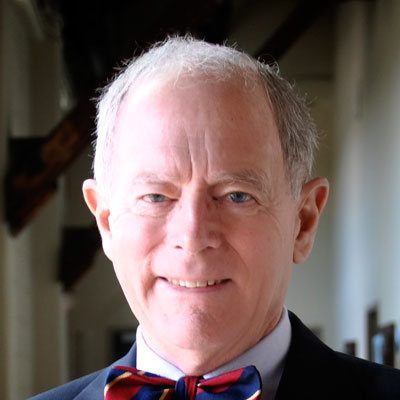- ON THE DECADE
- THE DECADE'S CAMPAIGN
- REPORTING ON PROGRESS
- THE DECADE'S PROGRAMMES
- FOCUS AREAS
-
- Access to sanitation
- Financing water
- Gender and water
- Human right to water
- Integrated Water Resources Management
- Transboundary waters
- Water and cities
- Water and energy
- Water and food security
- Water and sustainable development
- Water and the green economy
- Water cooperation
- Water quality
- Water scarcity
- FOCUS REGIONS
- RESOURCES FOR
- UN e-RESOURCES
Water for Life Voices
Voices from Civil Society Organisations
George C. Greene III
Ph. D. PE Chief Executive Officer, Co-Founder Water Missions International (WMI)

"In the water sector there has been a clear shift in focus from output-based programs such as drilling wells, to programs that aim for sustainable water and sanitation solutions that provide measurable impacts. Included in this shift is a greater interest first, in collaboration across different stakeholder groups and second in financial transparency and accountability around how funds are spent.
Although it is widely agreed upon that technologies and approaches should be appropriate for the context in which they are implemented, water professionals appear to be less reluctant now to utilize technology in order to accomplish sustainable outcomes. Ten years ago drilling a well and installing a hand pump was the preferred solution. Now advancements in solar technology, remote monitoring devices and mobile payment structures have enabled technologically advanced methods of providing water treatment solutions that are both sustainable and affordable. In addition, there has been a realization that community investment, engagement and local ownership are as important predictors of sustainability as the technology that is utilized.
WMI has always believed that the effort to implement safe water solutions in hard to reach communities around the world could best be accomplished through professionals who are solely focused on solving the global water crisis. To this end, WMI employs western educated engineers who partner with indigenous staff in developing countries. Within the last decade, WMI has grown to 150 staff members, made up of engineers, WASH professionals and community development professionals focused on water and sanitation projects in their own countries.
Appropriate use of technologies has been the lifeblood of Water Missions International (WMI) from the start. WMI’s water treatment, remote monitoring and solar pumping initiatives are examples of this, none of which were considered viable options for rural developing countries even as recently as five years ago. WMI has a commitment to providing the people we serve with safe water, as opposed to just improved water. In other words the water we provide is free of micro biological contaminants. This high standard is achieved through the engineering discipline that goes into the design and project management of each and every project we implement.
Finally, WMI has always believed in learning and sharing knowledge related to water and sanitation projects, whether successes or failures. To that end, we have been on the forefront of implementing health impact studies that quantify the health impact of water and sanitation interventions.
From our perspective we are starting to see less competition and greater willingness to collaborate particularly between NGOs, private companies, and government entities. We would like to see an even greater shift from talking about collaboration to actually implementing a strategy that effectively utilizes the strengths of all stakeholders. We would also hope to see enhanced collaboration resulting in a clearer definition around "safe water" versus "improved water" which would lead to alignment around success standards for the entire sector. Finally, WMI hopes that a great deal of learning will actually take place from the large amount of data that is being collected and that this learning will result in more cost efficient and more sustainable approaches and services."
>> Intro
>> Progress
>> Pride
>> Hope
>> Your Voice
>> End
>> Full Exhibition
>> Ecosystems
>> Empowering communities
>> Food security
>> Gender and water
>> Groundwater
>> Hygiene
>> Open defecation
>> Participation
>> Sustainable development
>> Water and culture
>> Water and disasters
>> Water and energy
>> Water and health
>> Water for cities
>> Water efficiency
>> Water quality
>> Water scarcity
>> Voices of experts
>> Voices from business
>> Voices from the civil society
>> Voices from the field: case studies
>> Africa
>> Asia and the Pacific
>> Europe
>> Latin America and the Caribbean
>> Middle East
>> Oceania
>> Decade’s achievements. From MDGs to SDGs
>> Five years of UN-Water "Water for Life"
Awards 2011-2015
>> Water for Life Voices
Copyright | Terms of use | Privacy notice | Site Index | Fraud alert | Help




